Certified Translation: The Ultimate Checklist for Accuracy and Acceptance

Summary
Certified translation services are necessary when accuracy and legal validity are paramount. Whether dealing with immigration applications, legal contracts, or official records, certified translations ensure your documents meet regulatory standards. This blog provides a comprehensive checklist to ensure your translation is certified, accurate, and legally accepted. From understanding USCIS translation requirements to choosing a certified translator, we cover all the essentials to ensure your documents are correctly translated and approved.
1. What Is Certified Translation and Why Is It Important?
Certified translation refers to a process where a professional translator guarantees the accuracy of the translation. This is essential in contexts where a legal, official, or government entity requires assurance that a document accurately reflects the original. Whether for USCIS translation requirements or legal papers, certified translations are necessary for ensuring compliance and avoiding rejection or legal disputes.
The Role of Certification
When a document is certified, it means the translator has provided a signed statement verifying that the translation is accurate and complete. This statement also includes the translator’s credentials and contact information, making it possible for the receiving agency or institution to verify the legitimacy of the translation.
Key features of a certified translation include:
- Accuracy: The translation faithfully conveys the meaning of the original document.
- Certification: The translator attests to the translation’s authenticity with a signed statement.
- Legal Compliance: The translation is legally valid and meets the standards set by USCIS, courts, and other authorities.
Certified translations are essential for any situation where your translated document will be submitted to government agencies, courts, or official institutions.
2. When Do You Need Certified Translation Services?
Certified translations are required for specific official, legal, and immigration documents. Here are the main scenarios where certified translation is essential:
1. Immigration Papers and USCIS Submissions
For anyone submitting documents to USCIS (U.S. Citizenship and Immigration Services), certified translations are mandatory. USCIS requires that any foreign-language document be accompanied by a certified translation. This applies to documents such as birth certificates, marriage certificates, divorce papers, and passport pages.
USCIS Translation Requirements:
- Notarized Translation: The translation must come with a notarized statement from the translator, confirming the translation’s accuracy.
- Accepted Documents: Common documents that require certification include:
- Birth Certificates
- Marriage Certificates
- Divorce Papers
- Adoption Records
- Passport Pages (ID and visa stamps)
- Birth Certificates
Failure to submit a certified translation may lead to the rejection of your USCIS application, delaying your case or even causing you to miss out on vital immigration opportunities.
2. Legal Documents
Certified translations are crucial for legal documents, where even a small error can cause significant legal repercussions. Whether you are involved in a civil case, small claims dispute, or a formal court hearing, accurate and certified translations are necessary for clarity and legal compliance.
Examples of Legal Documents Needing Certified Translation:
- Contracts and Agreements: Especially for international business transactions.
- Court Orders or Filings: Such as motions, pleadings, and legal affidavits.
- Wills and Trusts: Legal documents regarding inheritance and estate planning.
- Legal Affidavits and Sworn Statements: Required in various legal processes.
Mistranslation of these documents could result in delays, misunderstandings, or even litigation. Certified translations ensure that all parties involved understand the terms and conditions in their entirety.
3. Business Documents and Official Records
Companies operating internationally often need official translations for documents such as contracts, financial reports, and safety manuals. Ensuring these documents are accurately translated is vital for avoiding legal and financial penalties.
Business Documents Requiring Certified Translation:
- Product Manuals and Safety Data Sheets: Especially important for companies regulated by organizations like the FDA or the EU.
- Marketing and Advertising Copy: Translations for foreign markets must accurately represent your product’s features and avoid misleading claims.
- Financial Reports and Audit Statements: Ensures compliance with international business laws and regulations.
A wrong translation could lead to regulatory fines, loss of customer trust, or even lawsuits in foreign countries. Certified translation services act as a protective measure, ensuring your business documents meet legal standards.
3. The Role of Accredited Translators in Certified Translation Services
An accredited translator is a qualified professional who has passed rigorous tests to demonstrate their proficiency in both the source and target languages. They are usually certified by official bodies such as the American Translators Association (ATA) or the National Accreditation Authority for Translators and Interpreters (NAATI).
Why Choose an Accredited Translator?
- Legal Acceptance: Many official bodies, including USCIS, accept translations only from accredited translators, ensuring your documents are legally recognized.
- Expertise in Specific Fields: Accredited translators often specialize in legal, medical, or technical translation, ensuring they use the correct terminology for specialized documents.
- Quality Assurance: Accredited translators adhere to a code of ethics and continue their education, reducing the risk of errors in their translations.
Where to Find Accredited Translators:
- Professional Associations: Organizations like ATA and NAATI maintain directories of accredited translators, showcasing their credentials and areas of expertise.
- Translation Agencies: Reputable translation companies often employ accredited translators and may even highlight their credentials on their websites.
- Universities: Some universities offer certification programs that qualify translators, particularly for less-common languages.
By selecting an accredited translator, you are ensuring the highest level of quality and reliability for your certified translations.
4. How to Choose the Right Certified Translation Service for Your Needs
Choosing the right translation service provider can seem daunting, but a few key factors can help you make an informed decision. Here’s a checklist for selecting the best certified translation service:
1. Certification & Credentials
Make sure the translation service offers certified translations. Look for providers who can give you a notarized statement that complies with USCIS translation requirements. Ask for proof of accreditation, such as ATA or NAATI certificates.
2. Industry Knowledge and Specialization
If you need a legal translation or medical document translation, look for a service that specializes in that field. Industry-specific translators understand the terminology and nuances that are vital to accurate translation.
Things to Check:
- Relevant experience: For example, legal translation services for contracts or medical translation services for health-related documents.
- Sample Work: Ask for examples of previous certified translations to ensure they maintain accuracy and follow required standards.
3. Transparent Pricing
Request a detailed quote that breaks down the cost of the translation, certification, notary fees, and any rush charges. Transparent pricing helps you compare services and avoid hidden costs.
4. Speed and Reliability
Turnaround time is crucial, especially for time-sensitive documents like USCIS submissions or legal filings. Make sure the provider offers reasonable deadlines without compromising quality.
Questions to Ask:
- What is the typical turnaround time for certified translations?
- Can the provider handle urgent or expedited orders?
5. Customer Support
Ensure the translation service offers reliable customer support, with dedicated managers or a contact point for questions and updates. A service that communicates well is vital for ensuring smooth project completion.
Important Support Features:
- Quick responses to queries.
- Clear process updates throughout the translation project.
Conclusion
Certified translation services are indispensable for anyone navigating legal, immigration, or official paperwork. Whether you’re submitting documents to USCIS, translating legal contracts, or ensuring business compliance, the accuracy and legitimacy of certified translations can’t be overstated. By choosing a reliable certified translator with expertise in your document’s specific needs, you ensure that your translations meet legal standards and are accepted by authorities.
Use the checklist provided to evaluate translation services, ensuring they meet certification standards, are experienced in your industry, and offer transparent pricing and reliable customer support. Choosing the right certified translation service protects you from costly errors and helps ensure that your documents are legally valid and accurately translated.
Daniel Brooks is a New York City-based writer and content strategist with a deep curiosity for how language shapes connection across cultures. With over ten years of experience crafting digital content for global audiences, Daniel brings a thoughtful and practical voice to the Connected Translations blog.


